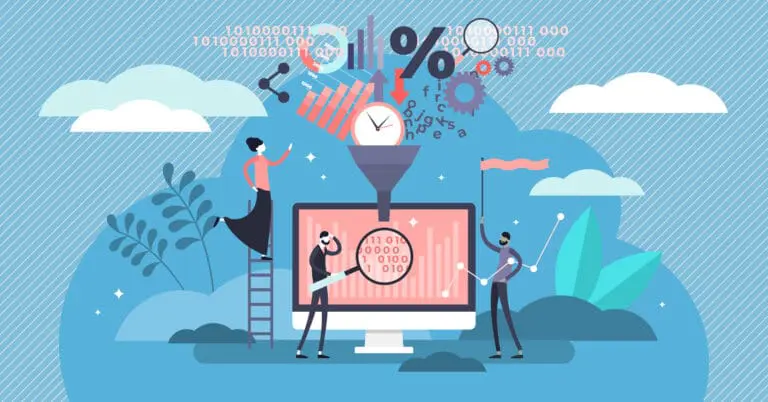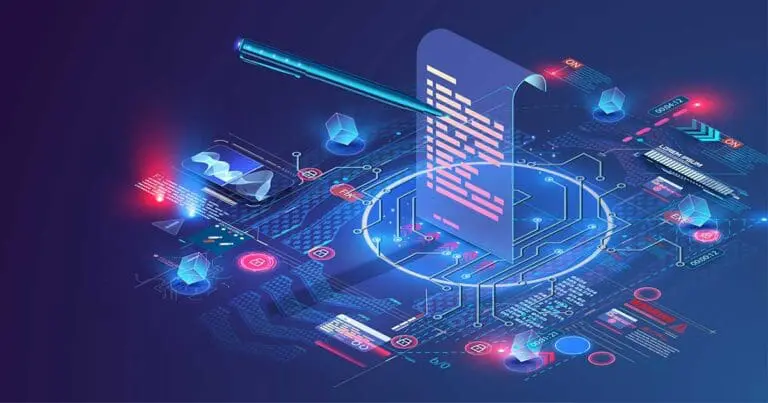AI You Didn’t Realize Your Organization Is Already Using

Artificial Intelligence (AI) has seamlessly woven into the fabric of our daily lives, often without us realizing its omnipresence.
AI’s capabilities are far-reaching and continuously evolving, from smartphone assistants to predictive text and recommendations on streaming platforms.
This article aims to illuminate the various, often unnoticed, ways AI integrates into our daily routines and organizational operations.
By doing so, it seeks to dispel common misconceptions and illustrate AI’s indispensable role in the modern workplace.
Demystifying AI: What it is and isn’t
AI is a system of algorithms and machine learning models designed to perform tasks that usually require human intelligence, such as understanding natural language, recognizing patterns, and making decisions.
Contrary to popular Hollywood portrayals, it is not an omnipotent force seeking to usurp human roles or instigate rebellion.
Over the years, AI has evolved from simplistic automated responses to complex machine learning and predictive analysis, becoming an integral part of workplace technology that streamlines operations, enhances productivity, and fosters innovation.
AI in the workplace: Real-world use cases
AI in the workplace real world use cases include email filtering and organization, document and data analysis, content creation and optimization, and data collection and reporting.
- Email filtering and organization
- Customer service chatbots
- Social media monitoring
- Sales and CRM tools
- Document and data analysis
- Recruitment and HR platforms
- Personal assistants and voice recognition
- Content creation and optimization
- Data collection and reporting
- Supply chain and inventory management
1. Email filtering and organization
Tools like Gmail utilize AI algorithms to automatically categorize incoming emails into distinct tabs such as Primary, Social, and Promotions, significantly simplifying email management for the user.
Additionally, AI is crucial in identifying and filtering spam and protecting users from unsolicited emails.
This application of AI technology allows individuals to focus on pertinent messages, enhancing productivity and efficiency in managing their inboxes.
2. Customer service chatbots
Many companies use chatbots on their websites or in customer service platforms to handle initial customer queries.
These chatbots, powered by AI, can provide instant responses to common questions, guide users through troubleshooting steps, or escalate issues to human representatives.
This seamless integration of chatbots into customer service processes enhances user experience and significantly reduces response times and operational costs.
3. Social media monitoring
Platforms like Hootsuite or Buffer harness AI capabilities to dissect social media engagement, advising optimal posting times to ensure content achieves its greatest exposure.
These platforms also utilize AI to vigilantly monitor mentions of your brand across diverse social media channels, assisting in effective online reputation management.
Such tools are pivotal in crafting strategic marketing campaigns that resonate with the target audience and foster brand loyalty.
4. Sales and CRM tools
Salesforce, HubSpot, and other CRM platforms leverage AI to score leads, predict sales outcomes, and generate personalized customer insights.
This integration enables sales teams to efficiently prioritize their efforts, focusing on leads with the highest conversion potential.
Additionally, it aids in tailoring approaches to meet the specific needs and preferences of individual prospects or customers, enhancing the overall sales strategy.
5. Document and data analysis
Tools like Evernote harness AI to enable the searching of handwritten notes, making even the most scribbled reminders accessible with a simple keyword search.
Meanwhile, data visualization platforms such as Tableau or Microsoft Power BI utilize AI to analyze large datasets, uncovering trends and insights that can significantly inform business decisions.
These applications showcase the versatility and power of AI in transforming data management and accessibility in the modern workplace.
6. Recruitment and HR platforms
LinkedIn, ZipRecruiter, and other HR technologies increasingly rely on AI to streamline the recruitment process by screening resumes and matching job descriptions with the most suitable candidates.
These platforms also leverage AI algorithms to predict which candidates are most likely to accept job offers and who will stay in their positions over the long term, thereby enhancing employee retention rates.
This application of AI optimizes the hiring process and ensures higher compatibility and satisfaction between employers and prospective employees.
7. Personal assistants and voice recognition
Voice-controlled personal assistants like Siri, Alexa, and Google Assistant epitomize the convenience AI brings to our daily routines.
These assistants utilize sophisticated AI technology to comprehend and process voice commands, enabling users to conduct internet searches, schedule appointments, or even manage smart home devices without lifting a finger.
This functionality enhances personal efficiency and can allow for a more interconnected and accessible home and work environment.
8. Content creation and optimization
AI tools like Grammarly use natural language processing to offer grammar, punctuation, and style suggestions, significantly enhancing the quality of written content.
Other platforms, such as Yoast SEO, analyze content to suggest SEO improvements, ensuring better online visibility for websites and blogs.
Similarly, AI-driven platforms like Copy.ai can generate compelling marketing copy based on specified keywords and the desired brand tone, streamlining content creation processes.
9. Data collection and reporting
AI’s ability to gather and analyze vast amounts of real-time data revolutionizes how businesses comprehend their operations and their market’s needs.
Organizations can gain actionable insights more swiftly and accurately than ever through platforms that automate data collection and reporting.
This capability accelerates decision-making processes and enhances strategic planning and forecasting, demonstrating AI’s critical value in data-driven business environments.
10. Supply chain and inventory management
In logistics and supply chain management, AI accurately predicts inventory needs, ensuring that the balance between supply and demand is meticulously maintained.
This technology also optimizes delivery routes, reducing fuel consumption and delivery times, significantly contributing to environmental sustainability and customer satisfaction.
AI also helps manage warehouse organization, employing algorithms that streamline the picking and packing processes, enhancing efficiency and reducing operational costs.
Dispelling AI misconceptions
AI misconceptions that need to be dispelled include the perception that AI will replace all human jobs, AI can make autonomous decisions, and AI is only for tech giants.
AI misconception 1: AI will replace all human jobs
While it’s a common misconception that AI will replace all human jobs, the reality is that AI primarily serves to augment human work, making processes more efficient and enabling employees to focus on more creative and strategic tasks.
By automating repetitive and mundane tasks, AI allows individuals to dedicate more time to aspects of their jobs that require human insight and judgment.
This symbiotic relationship between AI and human employees ultimately enhances productivity and innovation within the workplace.
AI misconception 2: AI can make autonomous decisions
Despite AI’s advanced capabilities, it still faces significant limitations, particularly in its ability to comprehend complex human emotions, cultural nuances, and ethical considerations.
This gap underscores the necessity for human oversight, ensuring AI’s decisions are guided by empathy, ethical standards, and a deep understanding of human society.
While AI can process and analyze data at unparalleled speeds, human insight remains crucial for making nuanced decisions and interpretations.
AI misconception 3: AI is only for tech giants
Contrary to popular belief, AI tools are not exclusively reserved for tech giants and are increasingly accessible to small businesses and individuals.
Many cloud-based AI services offer scalable solutions that can be customized to fit the size and specific needs of smaller enterprises.
This democratization of technology enables even the smallest of businesses to leverage AI for improvements in efficiency, customer service, and competitive advantage.
Real-world AI implementation
Artificial Intelligence (AI) has become intricately intertwined with our everyday lives, from the personal assistants in our smartphones to the tools we use for work and creativity.
Understanding AI’s pervasive role is key to demystifying its capabilities and acknowledging its limitations, ensuring we leverage these technologies to their fullest potential while being aware of privacy and ethical concerns.
By familiarizing ourselves with how AI operates within various platforms and tools, we can better appreciate its value and the advancements it brings to our personal and professional lives.
It is imperative that as we continue to adopt AI innovations, we do so with a critical eye towards maintaining ethical standards and safeguarding personal data.
Looking to hire top-tier Tech, Digital Marketing, or Creative Talent? We can help.
Every year, Mondo helps to fill over 2,000 open positions nationwide.
More Reading…
- The Latest Innovations in Health and Wellness Technology
- Green Tech: 5 Sustainability Innovations in the Tech Sector
- Top 6 Job Search Tips During Layoffs
- How to Write an ATS-Friendly Resume in 2024
- Unionized College Athletes: Dartmouth Sets a Precedent for Change
- Quantifying a Project Manager’s Success to Advocate for Hiring
- Breaking the Code: How Women are Shaping the Future of Cybersecurity
- The Rise of AI Majors: Transforming the US Job Market
- The Tech Layoff Boom: Shifts and Opportunities
- Tips to Leverage Your Onboarding Process for Employee Retention
- Pay Transparency: What States Have It & Why It’s Important
- 10 Tech Jobs That Saw the Highest Salary Growth This Year
- Highest Paid Data Science Roles & Top Salaries



